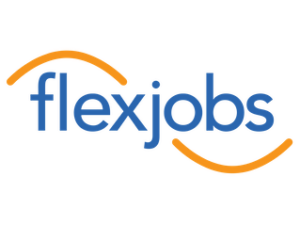Takeaways
- HENRYs (High Earners, Not Rich Yet) earn between $250,000 and $500,000.
- HENRYs have high tax bills because most of their income is considered earned income.
- HENRYs have high fixed costs and spend most of their money instead of investing.
- HENRYs that pivot from spending to saving can amass savings and investment quickly.
- HENRYs are dubbed the “working rich” because they must continue at their high-paying jobs to support and fund their lavish lifestyles.
Some of the links in this article are from advertising partners of Smart Money, which does not influence our evaluations or recommendations. We work to provide you with accurate and reliable information. Our opinions are our own.
What is a HENRY?
A HENRY is an acronym for high earners, not rich yet. While there is no hard and fast definition, HENRYs are individuals or families earning between $250,000 and $500,000 in gross income.
These families are considered “rich” by the standard definition, but this group of earners has a surprisingly low discretionary income. This makes it difficult for them to invest in stocks, save for retirement, and build a high net worth relative to their commanding salaries.
The term HENRY originally came from an article in Future Magazine describing a cohort of seemingly affluent Millennials [1]. This group was defined as two-income families with huge salaries, but other expenses, like tax bills, high living expenses, consumer debt, and student loans, never let them become wealthy.
HENRYs are known for their ability to afford luxury goods, buy houses, and fund lifestyles in expensive cities. One key difference between incomes in the U.S. is that the term “rich” can vary tremendously by geographic location and the corresponding cost of living. For example, a $300,000 salary in Austin has more spending power than in cities like New York City, Boston, Chicago, or San Francisco.
While these high earners post impressive income numbers, they need to catch up on their savings, which will make it difficult for them to reach retirement or achieve financial independence.
Ways to Become a HENRY
HENRYs are touted for their ability to earn extremely high incomes relative to the average American household income of $74,580 [2]. This cohort of workers earns multiples above the average household, and many people want to understand how they can earn a high income.
One key to landing a high-paying job is to choose a profession with the opportunity to command a high salary. This usually means there is a competitive moat around such lucrative careers. This could mean years of higher education to become a doctor, dentist, or lawyer. Alternatively, it could mean putting in sweat equity to start your own business or climbing the corporate ranks and get the raises you deserve.
Many HENRYs work for established companies in expensive cities where the cost of living is exceptionally high. To become a HENRY, you might need to move to a town with more opportunities for high-income positions. While you might be able to reap more income, that doesn’t mean you are left with a high discretionary income.
You don’t have to work one job to become a HENRY. For example, a household with two workers earning $125,000 totals a gross income of $250,000. While this is technically at the bottom end of the definitional bell curve, it might seem more attainable. You can also become a HENRY by creating multiple income streams by working more than one job, starting a side hustle, or becoming a freelancer while also keeping your day job.
Get Smart With Your Money
Fresh weekly articles delivered straight to your inbox.
Enter your name and email for free tips and tricks.

Advantages of Being a HENRY
Whether you consider yourself in this category of salary earner or not, many people strive to reach this level of income production. Here are several advantages of being a HENRY:
- Afford Larger Cities: Sometimes, to earn a high income, you need to be in a city that commands higher salaries. The average lawyer in New York City earns much more than the one in Des Moines and large metropolitan areas have been attracting younger professionals. More and more people flock to the coastal cities to begin their careers and families. Read more about how much to spend on rent and how to buy your first home.
- Buy Luxury Brands: Expensive tastes are hard to shake. Many of the HENRYs are white-collar workers – accountants, engineers, middle managers, and vice presidents – who have worked hard for their money and enjoy spending. In some cases, a bit too much. Luxury brands have started to target this income-producing demographic. Read more about how to curb your spending.
- Work Flexibility: Commanding higher salaries can be even more lucrative if you can take advantage of geographic arbitrage. The work-from-home boom of 2020 has continued as high-earning workers have moved from city centers to more affordable areas of the U.S.
- Financial Flexibility: By paying off student loans and credit cards, HENRYs can use their newfound cash flow to start saving, investing in stocks and bonds, and squirreling away retirement funds. High-income earners can also adopt a strategy utilized by the FIRE movement and gradually eliminate costs over time. The combination of high incomes and low fixed costs can be a recipe for financial success.

Flexjobs Website
Flexjobs
Smart Money Rating: 4.5/5
Best For: Finding Remote and Freelance Work
Success: Secured Over 10 Million Remote Jobs
Disadvantages of Being a HENRY
Earning a high income can also produce financial stress. Here are several disadvantages of being a HENRY:
- High Student Loans: Part of the HENRY profile is having a large amount of student debt to fund the advanced education it takes to command high salaries. Some financial advisors estimate HENRYs have as much as $80,000 in student loans. Making student or private student loan payments can put pressure on your budget, even when earning a high salary. A high debt-to-income ratio could hamper your ability to buy a house or purchase a new car.
- High Fixed Costs, such as rent in an expensive city, can eat into discretionary income. You should seriously consider how much you are spending on rent. Part of enjoying the HENRY lifestyle is being able to rent luxury apartments or condominiums. The short-term emphasis on paying for what you can afford on rent could hamper your ability to save for a down payment while renting.
- Low Savings Rates persist when so much of your monthly cash flow is allocated to credit card payments, student loan minimums, high rents, and occasional splurging on luxury goods. According to financial experts, the way to break the cycle is to pay off your debt and increase the percentage of your earnings you stash into a high-yield savings account and investments.
How to Save Money As a HENRY
Everyone wants to have a little more cash in their bank account. With such high-income levels, HENRYs are the cohort set up to accelerate their savings. Here is how they can increase their net worth:
- Setting Financial Goals: One of the smartest money moves is creating a financial plan and setting specific goals. These can be short-term goals, such as paying off $5,000 in student loans over the next three months. Alternatively, they can be longer-term, such as having an emergency and slush funds within two years.
- Reduce Debts: One of the fastest ways to save money is to free up your monthly debt payments. By paying off your credit cards, student loans, or personal loans, you boost your debt-to-income and can commit those debt payments to your savings and investment accounts.
- Investing in Stocks: Investing in the stock market is a well-worn path to help accumulate wealth. The average S&P 500 annualized return over the last ten years was 10.63% [3]. You can set up a brokerage account in minutes and even automate your finances to place monthly deposits in your account. Read our selection of the best online brokerage accounts.
- Buying a House: Lenders like to extend credit to high-income households. Depending on your housing market, you might need a jumbo or conventional loan to buy your first house. Like most home purchasers, this group must save for a down payment. Lenders will charge private mortgage insurance if you cannot pay the standard 20% down payment, particularly if you are a first-time buyer in an expensive housing market. However, earning home equity over time will increase your net worth.

Acorns Website
Acorns Investing App
Intro Offer: $20 Bonus Investment
Recommended For: Beginner Investors
Annual Fee: N/A
Smart Money Rating: 5/5
Are All HENRYs Millennials?
While the term HENRY was initially used to describe families suffering from the Alternative Minimum Tax (ATM) code of the early 2000s, it has been colloquially adopted to refer to Millennials and younger professionals. Today, it is generally used to describe professionals in their 30s and 40s who have made their way into the high-income tax brackets and are having difficulty shedding unruly spending habits, high consumer debt, and fixed costs.
But the HENRY maxim isn’t constrained to Millennials. Generation X has super-income earners who face the same problem.
Smart Summary
At first glance, you might want to become a HENRY. With a second glance, you might want to take advantage of being a HENRY (or an extremely high earner) and pivot that into being a high saver. Creating the proper lifestyle where you reap the benefit of high income and reduce spending will boost your discretionary income. The average millionaire has multiple revenue streams, not simply their day job. Consult your financial plan and contemplate how to use the cash injection to invest in dividend-paying stocks, high-yield savings accounts, or bonds. Building multiple revenue streams can give you the financial freedom you deserve. Who knows, you might wind up as a high earner retiring early.
(1) CNN. Taxpayer, Beware! Washington will soon be taking back a good chunk of that new tax cut. How? By using the sneakiest trap it’s got: the Alternative Minimum Tax. Last Accessed April 16, 2024.
(2) United States Census Bureau. Income in the United States: 2022. Last Accessed April 16, 2024
(3) S&P 500. Equities Overview: April 15, 2024 to April 15, 2014. Last Accessed April 16, 2024.









